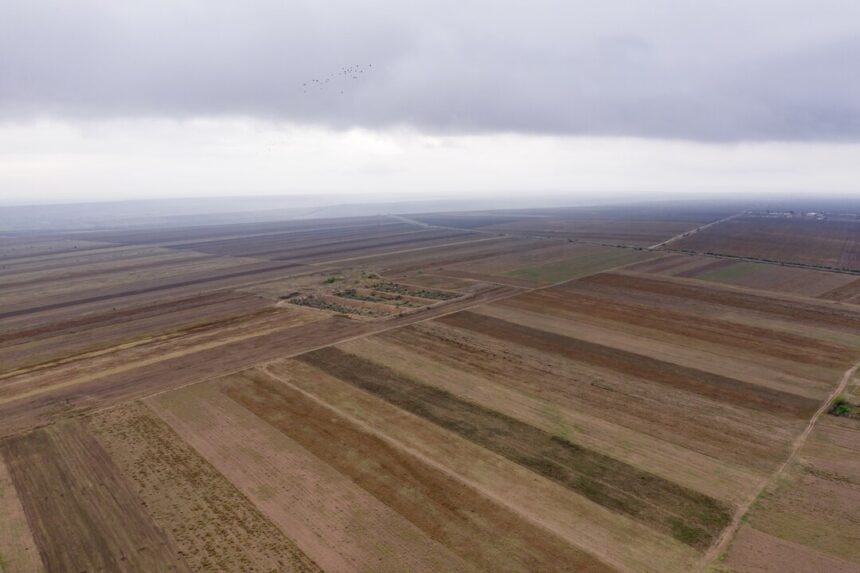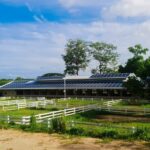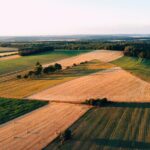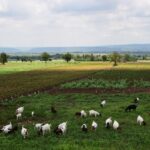Access to land is a fundamental requirement for anyone looking to start or expand a farming operation in South Africa. With its rich agricultural heritage and diverse landscapes, the country offers a wealth of opportunities for aspiring farmers. However, navigating the complexities of land access can be challenging. In this article, we’ll explore the various options and strategies available to individuals and communities seeking to acquire land for farming in South Africa.
- Purchase: One of the most straightforward ways to access land for farming is through outright purchase. Buying land allows farmers to have full control over their property and operations. However, purchasing land can be expensive, particularly in prime agricultural regions. It’s essential to conduct thorough research and financial planning before committing to a purchase.
- Leasing: Leasing land is a popular option for farmers who may not have the capital to buy land outright or prefer to minimize their financial risk. Leasing arrangements can vary in duration and terms, providing flexibility for farmers to negotiate agreements that suit their needs. Lease agreements should be carefully drafted to clarify responsibilities, rent payments, and other terms.
- Land Redistribution and Restitution: South Africa’s land reform program aims to address historical injustices and promote equitable access to land. Through land redistribution and restitution initiatives, the government seeks to transfer land ownership to previously disadvantaged individuals and communities. Farmers interested in participating in these programs can explore opportunities for acquiring land through government channels or community-led initiatives.
- Land Reform Partnerships: Collaborating with government agencies, non-profit organizations, or community groups can facilitate access to land through land reform partnerships. These partnerships may involve joint ventures, cooperative arrangements, or shared ownership models, enabling farmers to access land while benefiting from support services, training, and resources.
- Land Aggregation and Fragmentation: Land aggregation involves consolidating smaller parcels of land into larger, more economically viable units, while land fragmentation refers to the division of larger properties into smaller parcels. Farmers can explore opportunities to participate in land aggregation projects to access larger tracts of land for farming or consider purchasing or leasing smaller parcels through land fragmentation initiatives.
- Land Sharing and Intercropping: Land sharing involves collaborative arrangements where multiple farmers share access to the same piece of land, often practicing different farming methods or crops. Intercropping, where multiple crops are grown together in the same field, is another strategy for maximizing land productivity and diversity. These approaches can be particularly beneficial for small-scale farmers with limited resources.
- Land Trusts and Conservation Easements: Land trusts and conservation easements are mechanisms for protecting land from development and preserving its agricultural or environmental value. Farmers can explore opportunities to access land through land trusts or enter into agreements to lease or manage land for conservation purposes while retaining agricultural use rights.
- Urban Farming and Rooftop Gardens: In urban areas, accessing land for farming may present unique challenges due to limited space and high property prices. However, urban farming initiatives, such as rooftop gardens, community gardens, and vacant lot cultivation, provide opportunities for individuals and communities to engage in agriculture closer to urban centers. These initiatives can promote food security, community engagement, and environmental sustainability.
- Land Banking and Speculation: Land banking involves acquiring land with the intention of holding it for future development or investment. While land speculation can drive up land prices and limit access for farmers, strategic land banking initiatives by government agencies or non-profit organizations can help secure land for agricultural purposes and prevent speculative practices.
- Legal and Regulatory Considerations: When accessing land for farming in South Africa, it’s essential to consider legal and regulatory requirements related to land ownership, tenure, zoning, and environmental compliance. Working with legal advisors and land professionals can help farmers navigate the complexities of land acquisition and ensure compliance with relevant laws and regulations.
In conclusion, accessing land for farming in South Africa requires careful consideration of various options and strategies. Whether through purchase, leasing, land reform initiatives, partnerships, or innovative approaches like urban farming, there are numerous pathways for individuals and communities to secure land for agricultural use. By leveraging available resources, collaborating with stakeholders, and navigating legal and regulatory frameworks, farmers can overcome challenges and realize their vision of sustainable and prosperous farming ventures in South Africa.
Join 'Farmers Mag' WhatsApp Channel
Get the latest Farming news and tips delivered straight to your WhatsApp
CLICK HERE TO JOIN






